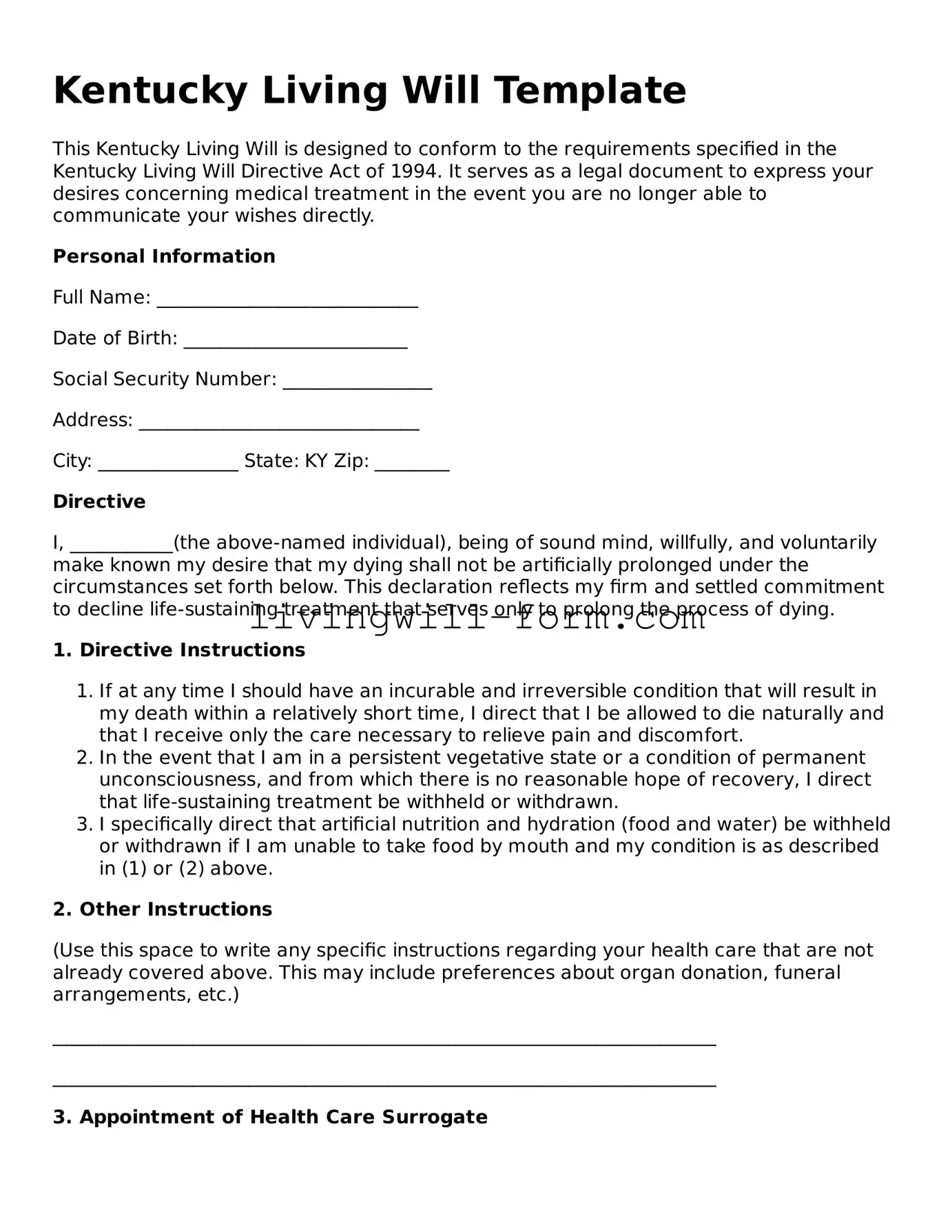Kentucky Living Will Template
This Kentucky Living Will is designed to conform to the requirements specified in the Kentucky Living Will Directive Act of 1994. It serves as a legal document to express your desires concerning medical treatment in the event you are no longer able to communicate your wishes directly.
Personal Information
Full Name: ____________________________
Date of Birth: ________________________
Social Security Number: ________________
Address: ______________________________
City: _______________ State: KY Zip: ________
Directive
I, ___________(the above-named individual), being of sound mind, willfully, and voluntarily make known my desire that my dying shall not be artificially prolonged under the circumstances set forth below. This declaration reflects my firm and settled commitment to decline life-sustaining treatment that serves only to prolong the process of dying.
1. Directive Instructions
- If at any time I should have an incurable and irreversible condition that will result in my death within a relatively short time, I direct that I be allowed to die naturally and that I receive only the care necessary to relieve pain and discomfort.
- In the event that I am in a persistent vegetative state or a condition of permanent unconsciousness, and from which there is no reasonable hope of recovery, I direct that life-sustaining treatment be withheld or withdrawn.
- I specifically direct that artificial nutrition and hydration (food and water) be withheld or withdrawn if I am unable to take food by mouth and my condition is as described in (1) or (2) above.
2. Other Instructions
(Use this space to write any specific instructions regarding your health care that are not already covered above. This may include preferences about organ donation, funeral arrangements, etc.)
_______________________________________________________________________
_______________________________________________________________________
3. Appointment of Health Care Surrogate
I designate the following individual as my surrogate to make health care decisions for me according to my wishes when I am no longer capable of making those decisions myself.
Name: ___________________________ Relationship: ____________________
Address: ___________________________________________________________
Phone: __________________________ Alternate Phone: __________________
Alternate Surrogate (in case the person named above declines or is unable to serve)
Name: ___________________________ Relationship: ____________________
Address: ___________________________________________________________
Phone: __________________________ Alternate Pthone: __________________
Signature and Acknowledgment
This document represents my directive and should be honored as a legally binding document under Kentucky law. I understand the full import of this document and I am emotionally and mentally competent to make this will.
Signature: ___________________________ Date: ____________
Witness Declaration
We hereby declare that the individual who has signed this document is known to us, declared to us that they are emotionally and mentally competent to make this living will, and they have accordingly signed this document in our presence.
Witness 1 Signature: _________________________ Date: _______________
Witness 2 Signature: _________________________ Date: _______________
Notary Public
This document was acknowledged before me on (date) ________ by (name of principal)_________________________.
__________________________________
Notary Public
My commission expires: ____________

